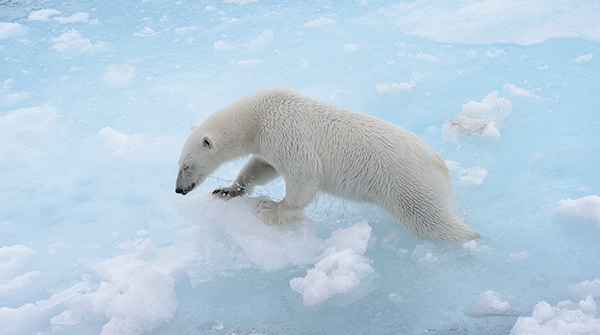
Why is the course interesting?
Recently, it seems there are few hot-button issues globally being discussed with the urgency of climate change and the state of the environment. The University of Guelph-Humber’s Electives course, “Human Impact on the Environment,” aims to give students some scientific context for all kinds of environmental issues.
Taught by Dr. Luana Sciullo, the course also shows how what seem like purely scientific topics actually translate into real-world scenarios.
“We look at things like how culture, economy, policy, politics and all these other additional factors that you wouldn’t think would be related to what people might think are just science topics are in fact very highly connected,” Dr. Sciullo said. “We give both the science aspect and a society perspective.”
Students would likely also be interested in Dr. Sciullo’s background. With years of experience conducting research in ecology, freshwater biology and environmental science, Dr. Sciullo’s PhD thesis brought her to the Canadian arctic to study how changes in temperature and shifts in sea ice were affecting the health and diet of Hudson Bay polar bears.
What will you learn?
Students will initially explore global population growth and how certain historical shifts – including the agricultural revolution and the advent of large-scale industrial farming – have made it possible to feed more people while also having negative consequences for the environment.
“Human Impact on the Environment” also delves into the reasons for the rise in endangered or extinct species and the cost of clear-cutting large areas of forest ecosystems to create farm land. There are lectures on the issue of climate change and its relationship to energy use – including the extraction of fossil fuels – as well as a week spent discussing both the benefits and drawbacks of such alternative energies as solar, wind and hydro power.
The course’s scope even extends to the effects of urbanization – or the mass migration of people from rural areas to city centres – including hazardous waste, urban sprawl, and the need for more green space in urban areas.
What will you take away from the course?
Although Dr. Sciullo emphasizes that students do not need a background in science to excel in her course, she nevertheless hopes that “Human Impact on the Environment” might spark a lasting interest.
“People sometimes might find science to be kind of dry, if it’s not something you’re into, so I’m hoping the science in this course gives students a broader picture of the topic and makes it more applicable to their own lives,” she said.
“We have little sections at the beginning of the course where we talk about individual impact on the environment. Looking at things like carbon emissions and waste production – those have a bit of science to them, but we try to make it applicable to students’ lives. Everyone takes the bus or rides the subway or drives a car, so the topics hit closer to home than other science classes would.”







